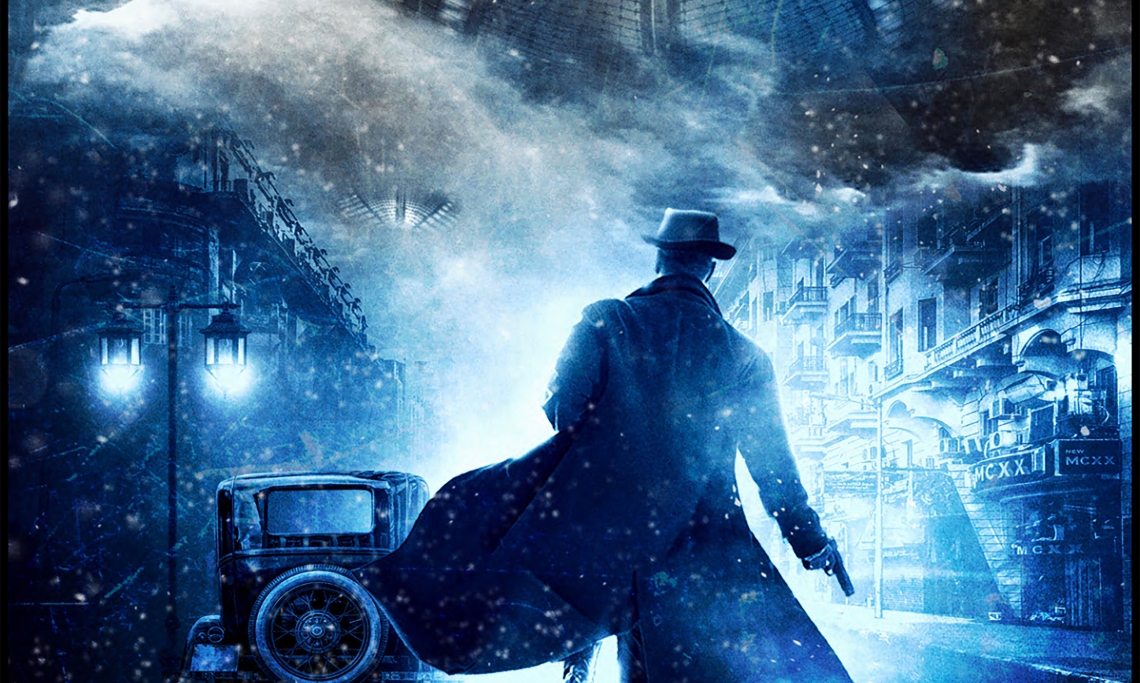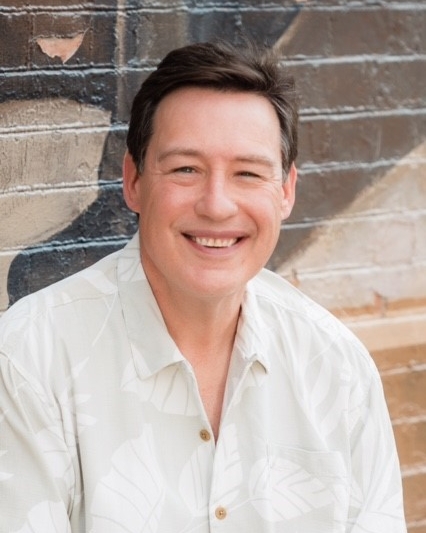Bootleggers and Aliens Phil Brown '85L blends history and science fiction in his inaugural novel "It Gives You Strength."
Shortly after Phil Brown ’85L retired from his successful boutique litigation practice in Honolulu, Hawaii, and moved to Durango, Colorado, he sat down to do something he’d always wanted to do — write a novel.
If Brown had followed the standard advice given aspiring writers to write what they know, you might have expected him to pen a legal thriller à la John Grisham or Scott Turow. After all, he had 32 years’ worth of plot lines from which to choose.
Even his wife wondered if that wouldn’t be the logical way to go.
“I told her that it’s like someone who’s come back from Vietnam, and they say, ‘I don’t want to talk about it.’ That’s how I felt,” Brown said. “I was involved in some pretty horrible cases during my career, from a death penalty case in Richmond to some knock-down, drag-out trials in Hawaii. By the time I was done with my career, I was tired.”
Initially, Brown planned to write a history of bootlegging in upstate New York in the 1920’s. His grandfather had been a prominent bootlegger in that region and was, Brown said, something of a hero to his family. As he became immersed in the research, Brown kept stumbling across historical oddities that sent him off in tangents. Before long, his project morphed into a novel, which is equal parts historical fiction, science fiction and fantasy.
“It Gives You Strength” is set in New York during prohibition and features a cast of fictional characters who interact with such notable historical figures as mobster Jack “Legs” Diamond, heavyweight boxing champion Jack Dempsey, and even World War I heroine Edith Cavell. Leading the cast of fictional characters and turning the novel on its head is an alien scientist on a rescue mission to earth. The alien winds up inhabiting the dying body of a bootlegger and lands in the middle of a turf war over the lucrative Canada to New York smuggling market.
One reviewer described Brown’s novel as a “rip-roaring blend of space opera, history, and fantasy” while another labeled it “Starman meets Boardwalk Empire.”
Even Brown can’t say exactly how he made the leap from the 19th Amendment to aliens.
“I wanted to make the book as historically accurate as I could, but I also wanted a unique hook of mixing historical facts with fictional characters,” he said. “Then I needed some literary device to mix it all together and landed on the alien rescue mission angle. I always loved science fiction, but I’m no expert of the genre.”
Clearly, Brown wanted to entertain his readers with the mobster shootouts and boxing matches. He also wanted to call attention to some of the more obscure history he’d uncovered. For example, he became intrigued by the Craig Colony for Epileptics and used the facility as the location where the alien princess was captive. Until he started his research, Brown had never heard of the Craig Colony but found its practices hard to imagine.
“It was about the time of the eugenics movement, and certain doctors decided that to protect people with seizures from bigotry they would create ‘safe havens’ for them,” Brown explained. “In fact, they were held like prisoners and the doctors didn’t have a good idea of how to control the seizures. I was determined to bring this history to light. Any time I’m asked to talk about the book, I tell people to Google the Craig Colony.”
Brown received his undergraduate degree in history and political science from Le Moyne College in Syracuse, New York. His mother had put lawyering in his head when he was 11 or 12 years old. Brown said he was able to pursue that career because W&L offered him a generous scholarship.
“I came from modest means and would have never been able to go to law school without the unbelievable scholarship,” Brown said. “I never would have been able to do the things I’ve done in my life had it not been for that, and I’m grateful to Washington and Lee.”
At W&L, Brown was a member of the Jessup International Moot Court Team, and he also performed in the University Theatre in W&L playwright Tom Zeigler’s play, Love Poems. He always intended to be a litigator. Though he won a book award for criminal law from Professor Bill Geimer and had a 4.0 in criminal procedure with Professor Roger Groot, his only experience in criminal law was at the outset of his career.
He had started with Hunton & Williams in Richmond after graduation and was volunteering with the Virginia Coalition Against the Death Penalty, where he had several memorable experiences. He can still recall many of the details of visiting an inmate on death row at the Mecklenburg Correctional Center.
“I was 24; he was 19 or 20. It was an astounding experience. It might have been the first client contact I’d ever had, and I’m on death row talking to this young guy who’s asking me questions and I’m doing my best to answer them,” Brown said. “I always thought back over my years of practice that having someone who’s handling his first criminal case in that situation was a real failure of our legal profession.”
From Richmond, Brown moved to Reid & Priest in New York City for six years before relocating to Hawaii in 1993. He worked at two of the biggest Honolulu firms before opening his office in 1997. He built a thriving practice that was still going strong when he closed up shop and moved to Colorado.
“We have four kids,” said Brown, “and we wanted to spend some time with them.”
Then COVID hit. His wife, Dr. Sarah Brown, a Harvard-trained physician specializing in internal medicine, was on the front lines of the pandemic battle in Durango. While she was at the hospital, Brown was locked down at home, where he immersed himself in the world he’d created full of aliens and bootleggers.
A year after “It Gives You Strength” appeared, Brown published his second novel, “Harvesting Earthlings for Fun and Profit,” and he’s now beginning a third, which would round out a planned trilogy. He has other projects in mind, and he hasn’t given up on writing about the law.
His first novel does include one brief but pointed reference to the legal profession. When a lawyer informs a gang of killers that they won’t be getting paid, they respond: “What do you expect from a lawyer? He’s a liar. You’re a liar!”
“I did want to show how absurdly lawyers are treated by a distrusting public,” said Brown, “even when that public is a gang of mass murderers.”
If you know any W&L alumni who would be great profile subjects, tell us about them! Nominate them for a web profile.
 “It Gives You Strength”
“It Gives You Strength” Phil Brown ’85L
Phil Brown ’85L
You must be logged in to post a comment.